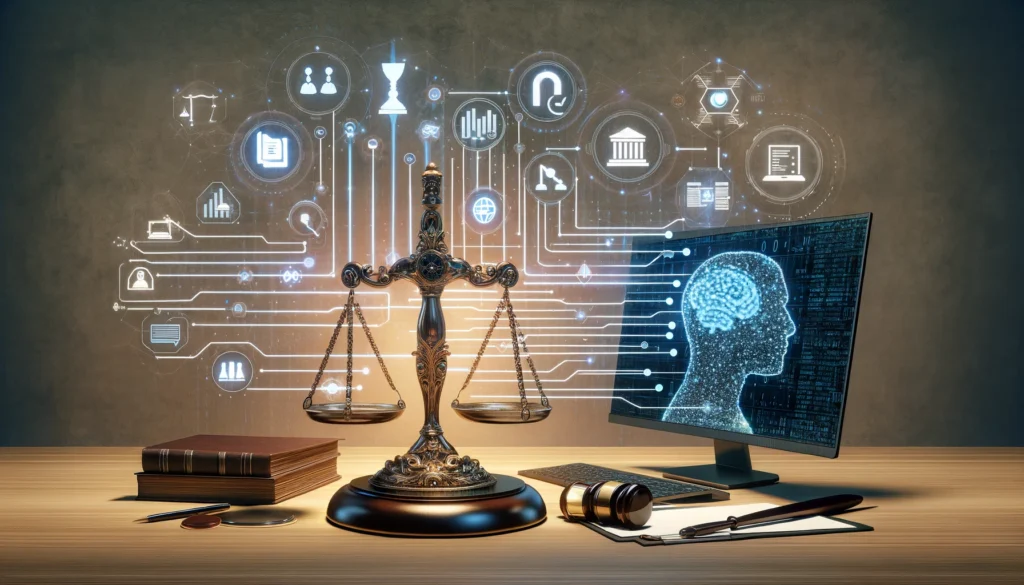
Corporate Entity Formation: Laying the Legal Groundwork
Creating a corporate entity is a foundational step for any business venture. It’s about more than just choosing a catchy name—it’s about establishing a legal structure that protects your assets, defines ownership and management roles, and ensures compliance with applicable laws and regulations.
But the world of corporate entity formation can be a labyrinth of legal complexities. From corporations and LLCs to partnerships and sole proprietorships, each entity type comes with its own unique requirements, filing procedures, and potential pitfalls. Ensuring accuracy and compliance in these documents is crucial to avoid future legal headaches and protect your business interests.
This is where ChatGPT emerges as an invaluable ally. By harnessing its AI-powered capabilities, you can streamline the entity formation process, reduce the risk of errors, and confidently lay a solid legal foundation for your business.
ChatGPT: Your Corporate Formation Consultant
Imagine having a seasoned corporate attorney on speed dial, ready to answer your questions, draft documents, and guide you through the intricacies of entity formation. While ChatGPT isn’t a substitute for legal counsel, it can certainly act as a valuable consultant, streamlining your workflow and ensuring accuracy in your filings.
Here’s how ChatGPT can elevate your corporate formation game:
- Drafting Essential Documents: Don’t waste time searching for templates or reinventing the wheel. ChatGPT can generate draft articles of incorporation, bylaws, operating agreements, and other crucial documents, tailored to your state and specific business needs.
- Researching Filing Requirements: Unsure about the specific steps, forms, or fees involved in forming a particular entity type in your state? ChatGPT can quickly research and summarize the relevant information, saving you valuable time and reducing the risk of errors.
- Identifying Risks and Liabilities: Before you finalize your documents, ask ChatGPT to review them for potential legal pitfalls, such as ambiguous clauses, missing provisions, or potential conflicts of interest. It can help you proactively address these issues and strengthen your legal foundation.
- Explaining Legal Terminology: Don’t let legalese intimidate you. ChatGPT can break down complex legal terms and concepts into plain English, ensuring you understand the implications of your decisions and can effectively communicate them to your clients or colleagues.
Remember:While ChatGPT can be an invaluable resource, it's important to exercise caution and not rely solely on its output. Always verify the accuracy of the information it provides, seek legal counsel for complex issues, and ensure compliance with all state-specific regulations.
Now that we’ve explored ChatGPT’s capabilities, let’s dive into the art of crafting precise prompts that will unleash its full potential in corporate entity formation.
Also read:
Prompt Engineering for Entity Formation Precision
Now that ChatGPT is on your team, it’s time to give it the blueprint for crafting precise entity formation documents. Think of your prompts as laser-focused instructions, guiding ChatGPT to create documents that are not only accurate but also tailored to your specific needs.
Prompt Examples:
- Document Generation:
- Basic Prompt: “Draft articles of incorporation.”
- Advanced Prompt: “Draft articles of incorporation for a Delaware C-Corp named [Company Name]. The corporation will have [Number] authorized shares of common stock, with a par value of [Par Value]. The registered agent will be [Agent Name and Address]. The corporation’s purpose is [Business Purpose]. Please include provisions for shareholder meetings, board of directors, officer roles, indemnification, and amendment procedures.”
- Bylaws/Operating Agreement:
- Prompt: “Create bylaws for an LLC in [State] that outline management structure, member meetings, voting rights, profit distribution, and dispute resolution procedures.”
- Purpose: This prompt helps you establish a clear framework for the company’s internal governance and decision-making processes.
- State-Specific Requirements:
- Prompt: “Research the filing requirements for a nonprofit corporation in [State]. Provide a checklist of the necessary documents, filing fees, and any additional steps required to obtain tax-exempt status.”
- Purpose: Ensures you have a clear roadmap to navigate the legal and administrative steps for entity formation in your chosen jurisdiction.
- Risk Assessment:
- Prompt: “Analyze this draft partnership agreement [insert text or link]. Identify any provisions that could potentially lead to disputes or legal challenges, such as unclear profit-sharing terms, undefined decision-making authority, or lack of an exit strategy.”
- Purpose: This prompt allows you to proactively identify and address potential risks before they become costly problems down the line.
Advanced Prompting Tips:
- Specificity: Be as specific as possible in your prompts. Clearly state the entity type, jurisdiction, and any unique provisions or circumstances that need to be addressed.
- Iterative Refinement: Use ChatGPT’s initial output as a starting point. Ask follow-up questions or provide additional details to refine and tailor the documents to your exact requirements.
- Legal Review: Always have an attorney review the final documents to ensure accuracy, compliance, and legal enforceability.
Additional Prompts to Consider:
- Stock Issuance: “Draft a resolution authorizing the issuance of [number] shares of common stock to [shareholder name].”
- Intellectual Property Assignment: “Create an agreement assigning all intellectual property rights for [product or service] from [inventor/creator] to [company name].”
- Foreign Qualification: “Research the process for registering a foreign corporation to do business in [state]. What are the necessary documents and fees?”
Entity formation is just the beginning. Let’s explore how ChatGPT can continue to support your business needs in maintaining compliance and navigating ongoing legal requirements.
Also read:
Beyond the Basics: ChatGPT for Ongoing Compliance
Creating your corporate entity is just the first step in a long journey. To maintain your company’s good standing and avoid legal pitfalls, staying on top of ongoing compliance requirements is essential. The good news is that ChatGPT isn’t just a one-trick pony; it can continue to be a valuable asset throughout your company’s lifecycle.
Here’s how ChatGPT can assist with ongoing compliance:
- Annual Reports and Filings: Whether it’s an annual report for your corporation or an updated statement of information for your LLC, ChatGPT can help draft these documents, ensuring you include all required information and comply with state regulations.
- Meeting Minutes: Don’t let board meetings or shareholder meetings turn into a scramble for accurate record-keeping. ChatGPT can help you generate clear and concise meeting minutes, capturing key decisions and discussions for future reference.
- Corporate Governance Changes: Need to update your bylaws or operating agreement to reflect a change in ownership, management, or business purpose? ChatGPT can research relevant laws and draft amendments that comply with legal requirements.
- Regulatory Updates: Laws and regulations can change unexpectedly. ChatGPT can help you stay informed by monitoring relevant updates, summarizing new requirements, and suggesting changes to your documents or procedures to ensure compliance.
Remember:While ChatGPT can streamline compliance tasks, it's not a substitute for legal counsel. Always consult with an attorney to ensure your company's ongoing compliance with all applicable laws and regulations.
The integration of AI in legal processes, including corporate formation, raises ethical questions. Let’s explore these considerations and the importance of human oversight.
Also read:
Ethical Considerations and the Role of Legal Counsel
While the allure of streamlining corporate formation with AI is undeniable, it’s crucial to tread this path with a strong ethical compass and a clear understanding of the boundaries.
Here are some key considerations:
- Unauthorized Practice of Law: ChatGPT is a tool, not a lawyer. It cannot provide legal advice or make decisions on behalf of a client. Using ChatGPT to generate legal documents without attorney supervision could be construed as unauthorized practice of law.
- Overreliance on AI: While ChatGPT is proficient at drafting documents, it’s important to exercise critical thinking and legal judgment. Blindly relying on AI-generated documents without thorough review can lead to errors, omissions, or provisions that don’t fully align with the client’s needs or comply with the law.
- Client Communication: Transparent communication with clients is essential. Explain the role of ChatGPT in the drafting process, and emphasize that it’s a tool used under attorney supervision. Make it clear that legal advice and final decisions rest with the attorney, not the AI.
- Data Security and Confidentiality: Corporate entity formation often involves sensitive financial and personal information. Take precautions to protect this data when using ChatGPT, ensuring that it’s handled securely and confidentially.
By using ChatGPT responsibly and in collaboration with legal counsel, you can leverage its capabilities to create accurate, efficient, and legally sound corporate entity documents while upholding the highest ethical standards. Remember, AI is a powerful tool, but it’s the lawyer’s expertise and judgment that ensure your business is built on a solid legal foundation.


